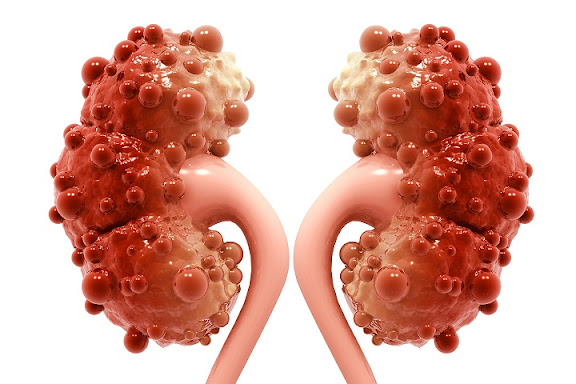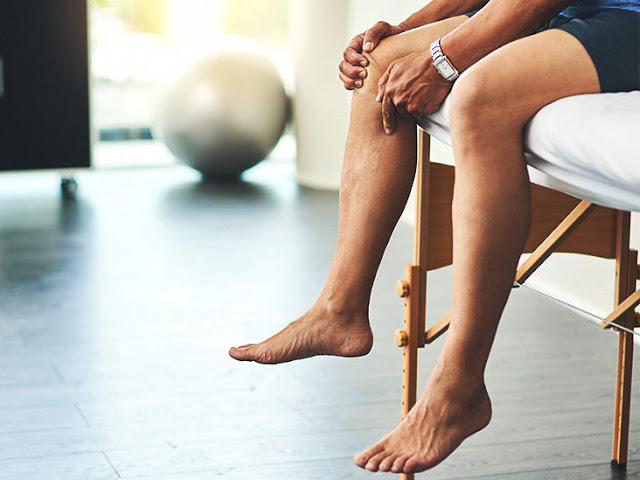What are the Ayurvedic Diet Tips for the Polycystic Kidney Disease (PKD)?
Polycystic kidney disease affects the patient's kidneys. The clusters of cysts that form on the kidneys can affect the patient's urine treatment and blood pressure. The kidneys enlarge and lose their function over time. Therefore, it is necessary to recognize the symptoms such as high blood pressure, headache, backache, abdominal problems caused by enlarged kidneys, kidney stones, kidney failure, etc.
Although there is no proven diet for polycystic kidney disease, it will definitely help to maintain a healthy lifestyle once the disease strikes the patient to prevent further complications. The diet acts as the best Polycystic kidney disease ayurvedic treatment as it focuses more on controlling the patient's blood pressure and body weight. Thus reduction of pressure on the kidneys also contributes to the health of the patient. A lot of waste builds up in the kidneys of the PKD patient. Therefore, it is necessary to eat healthy foods that do not store waste in the body. Preventing unhealthy habits such as drinking alcohol and smoking, Reducing intake of sodium (salt) to control blood pressure. All of these factors are included in a diet for a better Pkd treatment in ayurveda.
Follow these important ayurvedic tips to help you with your diet regime-Reduce the consumption of salt- Consuming too much sodium can increase a person's blood pressure and increase the risk of heart attack and stroke. In people with PKD, high blood pressure (hypertension) can also accelerate disease progression. The National Institute of Diabetes and Digestive and Kidney Diseases advises people with Polycystic kidney disease to limit their sodium intake to less than 2,300 milligrams per day and to avoid all packaged foods.
Consider heart-healthy foods- Many foods that are good for the kidneys are good for the heart. A heart-healthy diet usually includes fish and nuts, along with lean meats, green leafy vegetables, and low-fat dairy products. Saturated fats and trans fats are limited because eating too much can lead to heart disease. Heart health is important when you have Polycystic kidney disease because your heart already has to work harder to get blood to your kidneys.
Control protein- Our body needs enough protein to function, but not too much for the kidneys. When the body uses protein, it creates waste that the kidneys have to remove. Giving extra workload to the kidneys is not good for PKD.
Cut down on foods that contain phosphorus- Phosphorus can accumulate in the blood of people with PKD. It damages bones by releasing calcium from them, making them weaker. Choosing foods low in phosphorus (corn and rice grains) over foods high in phosphorus (bran cereals) and soft drinks.
Consume low-potassium foods- It is considered to be a crucial diet tip in Polycystic kidney disease treatment in ayurveda. Like phosphorus, potassium can build up in the blood of people with PKD. The right amount of potassium helps your nerves and muscles, including your heart muscle, to work properly. Too much can cause arrhythmia (irregular heart rhythm) or heart attack. The National Kidney Foundation defines a low-potassium diet as having less than 2,000 milligrams of potassium per day. Eat low-potassium foods such as apples, carrots, and white rice.
Drink plenty of water- Staying hydrated throughout the day helps reduce the build-up of a hormone called vasopressin in the body, which promotes the growth of PKD cysts. Avoid drinks that contain sugar or caffeine as caffeine can cause problems for people with PKD because it is a diuretic.
Limit alcohol consumption- Occasional drinking is not harmful to kidney damage. However, drinking three or more ounces of alcohol per day for several years has been shown to increase blood pressure, which accelerates the progression of PKD.
Conclusion
Polycystic kidney disease treatment in Ayurveda is the safest and purest way to treat kidney disease. It works by implementing changes in your diet and lifestyle. Ayurveda plays a very important role in our health and life. The Ayurvedic kidney treatment includes herbal medicines to protect all organs from infections and other complications caused by PKD.
One of the most authentic ayurvedic medicine for kidney disease is Lekhniya Guggul Ayurvedic Tablets. This remedy is made using pure ayurvedic herbs that are enriched with healing properties, beneficial to cure Polycystic kidney disease effectively.
Some of the Ayurvedic herbs that are useful in the Pkd ayurvedic treatment are-Gokshura- This is a natural herb that helps treat kidney problems and helps remove kidney stones.
Guggul- Guggul is a traditional ayurvedic herb that helps treat urinary tract infections and protects your kidneys from further damage.
Haldi- Haldi is a potent herb and has anti-inflammatory properties. This prevents kidney infections and protects your kidneys from dialysis.
Vijayasar- This natural herb helps in treating chronic kidney disease.
Other herbs used to treat polycystic kidney disease are Ashwagandha, Shankhpushpi, Ginger, Laung, Giloy, Green Tea, Nag Kesar, Nag Bhasma, sphatika bhasma, Triphala, Bhumi Amla, Harad, Baheda, Binaksha, Tej Patta, Shilajit, Tulsi, Neem, Brahmi, Kachnaar, Anardana, Choti Elaichi, Badi Elaichi, Ajwain, Mulethi, Fenugreek, Kesar, Kutki, Black Pepper, Katuja, Saunf, and Sarphoka, etc.












Comments
Post a Comment